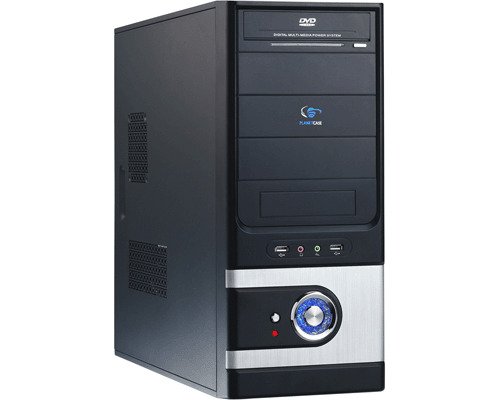 Blog's Page
Blog's Page

In Today's Fast-paced Digital World, A Sluggish Computer Can Be Frustrating And Impact Productivity Significantly. One Of The Core Components Responsible For A Computer's Speed Is The Central Processing Unit (CPU). The CPU Acts As The Brain Of Your Computer, Executing Instructions And Processing Data.
While Upgrading Your CPU Can Be A Costly Endeavor, There Are Several Practical And Cost-effective Ways To Optimize Its Performance. In This Article, We'll Explore Some Tips And Tricks To Make Your CPU Faster And Enhance Your Overall Computing Experience.
Over Time, Dust And Debris Can Accumulate Inside Your Computer, Particularly Around The CPU Cooling System. This Buildup Can Hinder Proper Airflow And Cause The CPU To Overheat, Resulting In Throttling To Prevent Damage. Regularly Clean Your Computer's Interior With Compressed Air Or A Soft Brush To Ensure Adequate Ventilation And Prevent Thermal Issues.
Keeping Your Operating System Up-to-date Is Essential For Optimal CPU Performance. Software Updates Often Include Bug Fixes And Optimizations That Can Enhance Overall System Efficiency. Additionally, Ensure That All Device Drivers, Especially Those Related To The CPU And Chipset, Are Up-to-date. This Will Enable Your CPU To Work Seamlessly With Other Hardware Components.
Having A Long List Of Startup Programs Can Slow Down Your CPU's Boot Time And Consume System Resources Unnecessarily. Disable Or Remove Programs From The Startup List That You Don't Use Regularly. You Can Do This Through The Task Manager On Windows Or The Activity Monitor On MacOS.
Background Processes Can Consume CPU Resources Even When You Are Not Actively Using A Particular Application. Use The Task Manager (Windows) Or Activity Monitor (macOS) To Identify Resource-intensive Background Processes And Close Or End Them When Not Required.
Traditional Hard Disk Drives (HDDs) Can Significantly Slow Down A Computer, Especially During Boot Times And Application Loading. Consider Upgrading To A Solid State Drive (SSD) For Faster Read And Write Speeds, Which Can Improve Overall System Responsiveness And Reduce CPU Load Times.
Adjust Your Computer's Power Settings To Favor Performance Over Power Saving. In Windows, You Can Choose The "High Performance" Power Plan, While MacOS Users Can Enable The "Better Performance" Option. This Ensures That The CPU Is Not Restricted When You Need Maximum Processing Power.
High Temperatures Can Lead To CPU Throttling, Reducing Its Performance To Prevent Damage. Install Monitoring Software To Keep An Eye On Your CPU Temperature. If You Notice Unusually High Temperatures, Consider Upgrading Your Cooling System Or Reapplying Thermal Paste To The CPU.
Overclocking Your CPU Can Be A Risky Endeavor, And It May Void Your Warranty. If Done Incorrectly, It Can Cause Stability Issues Or Damage Your CPU. However, When Performed Responsibly And With Proper Cooling, Overclocking Can Provide A Noticeable Performance Boost. Research Thoroughly And Proceed With Caution If You Plan To Overclock Your CPU.
A Faster CPU Can Significantly Improve Your Computer's Overall Performance, Making Your Daily Tasks Smoother And More Efficient. By Following These Tips, You Can Optimize Your CPU's Performance Without Breaking The Bank.
Remember To Strike A Balance Between Performance And Stability, And Always Prioritize System Health And Safety. A Well-maintained CPU, Combined With Other Hardware And Software Optimizations, Can Revitalize Your Computer And Extend Its Lifespan, Ensuring A More Enjoyable Computing Experience For Years To Come.
CPU Faster, CPU Status, CPU Machine, CPU Terminal